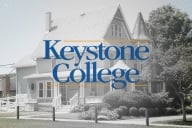You have /5 articles left.
Sign up for a free account or log in.
Maricopa County Community College District’s governing board engaged in union busting, “deliberately mischaracterizing” its multi-campus faculty governance body as a collective bargaining agent to “destroy” it, according to a new investigative report from the American Association of University Professors.
The board was further found to have repealed the entire faculty manual and restricted faculty involvement in institutional decision making in February of last year. It also voted to terminate a “meet-and-confer” process by which faculty members made recommendations to the board on salary and budgets -- allowing the board to make major decisions about faculty work and compensation without its input.
While the board’s actions plunged the district’s governance system into “chaos,” AAUP’s report says, Maricopa’s senior administration simultaneously “abdicated its appropriate leadership role” by “passively acquiescing in the board’s unwarranted actions.”
The association’s investigating committee wrote that it was unable to find any evidence suggesting that the board’s moves were in the district’s best interest. Instead, it wrote, “evidence strongly suggests that the board’s intervention was an engineered performance of political theater motivated by partisan ideology and political ambition.”
In January of last year, for example -- a month before the board slashed faculty governance -- then board chair Laurin Hendrix wrote district chancellor Maria Harper-Marinick an email saying, “State Republican convention was yesterday. This is election year. Republicans are impressed with the conservative direction of [the district].”
The email, obtained through public records requests, continued, “Let’s talk tomorrow but I’d like to 1) consider a letter from the board or district to the governor thanking him for considering bills but making clear that Maricopa does not need state funds at this time, 2) remove meet and confer immediately, 3) have a draft of a new faculty manual in 30 days with a goal of final approval in 60 days.”
Hendrix, a one-time Republican member of the Arizona House of Representatives, filed to again be a candidate in the Republican primary for the Arizona House days after he wrote that email, according to additional information obtained through public records requests. (He eventually declined to run.)
Campus governance presidents and representatives were also told to avoid any faculty governance-related work or conversations during business hours in the aftermath of the board vote.
Maricopa's Faculty Association was incorporated as a union, but it has no collective bargaining rights, according to state law.
Last-minute amendments to the board’s 2018 resolution immediately eliminated any reassigned time for members of the district-wide Faculty Association’s Faculty Executive Committee and reiterated an Arizona statute that “prohibits employees of Maricopa County from engaging in fundraising activities for a political action committee while on duty.”
The obvious intent of the resolution, according to AAUP, “was to eliminate not only the 40-year-old practice of meet-and-confer but also any governance structures and practices that supported it.”
Ideas in the board's resolution can be traced back to a 2017 white paper written by a campus administrative vice president, apparently at the behest of another board member who emailed him that the board was "going after" meet-and-confer. That white paper advocated converting tenured appointments to "at will" positions, eliminating a district shared governance clause, and creating a curriculum process in which the faculty participates but does not direct.
Reversing Course
The good news, according to AAUP? That was last year. This January, the board -- flush with new members and a new president -- reversed some of the previous members’ actions, to a cheering standing ovation from faculty and staff members present.
Still, AAUP says that whether the situation is fully resolved remains to be seen.
John Schampel, professor of biosciences at Phoenix College and president of the district’s Faculty Association, said AAUP’s report reveals “with startling clarity the governance and leadership failures” the district has experienced and “continues to experience.”
A major lingering concern for the faculty is the administration’s “deafening silence” and effective “complicity” regarding the board’s actions, Schampel said, quoting AAUP’s report. That’s especially true as Harper-Marinick remains district chancellor, he said.
Of Harper-Marinick, the report says, “It was her responsibility to inform the board of the implications of its actions and, in particular, of how its actions would affect the district.”
Given that board meetings are public forums, “it was her obligation to provide the public with her views regarding the board’s actions,” AAUP’s investigating committee added. “The most credible explanation for her inaction is that she feared that speaking out against the board would jeopardize her position.”
In response to AAUP’s report, the district in a statement underlined that the new board’s actions "immediately rescind" the controversial choices of its former members.
Going Forward
Typically, AAUP’s investigative reports set the stage for the body to vote to censure or sanction institutions for alleged violations of tenure of or shared governance, respectively, at its annual meeting every June.
Sanctions for shared governance violations are rarer than censures for tenure violations. The last institutions to be sanctioned were Union County College and the University of Iowa, in 2016. Iowa’s sanction was removed last year, however.
Irene Mulvey, chair of math at Fairfield University and chair of the AAUP committee that investigated Maricopa, said she thought that a vote to sanction the district in June “would have been approved.”
But given the “very positive turn of events” described in the latter parts of the report, she said, AAUP will probably continue to monitor “very closely how things progress with the new governing board leadership” in Arizona.
Hans-Joerg Tiede, associate secretary of academic freedom, tenure and governance at the AAUP, said it’s the association’s understanding that there are “ongoing negotiations about the re-establishment of governance following the rescission of the resolution that have not yet been completed.”
The AAUP continues to follow the matter closely, he said.









